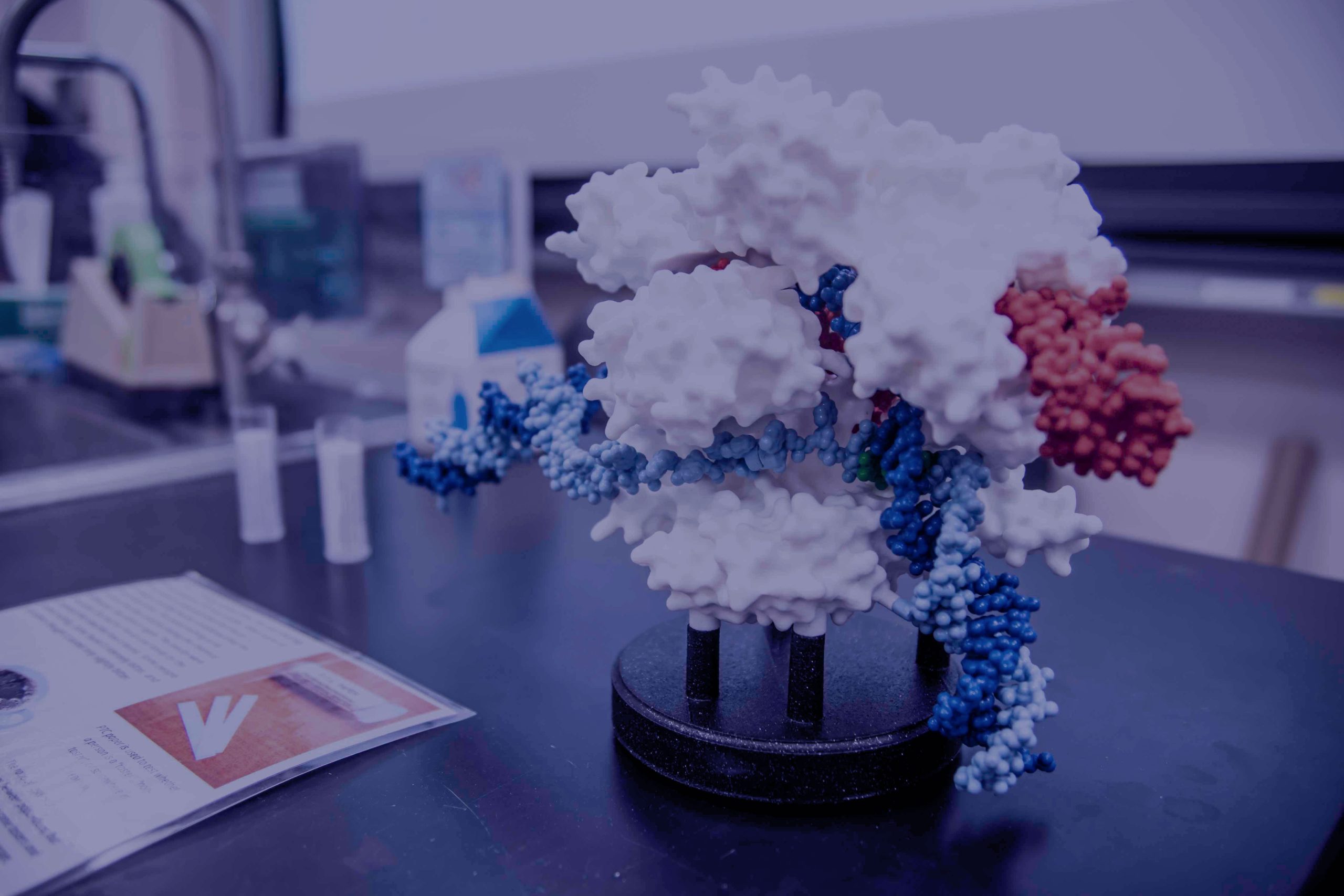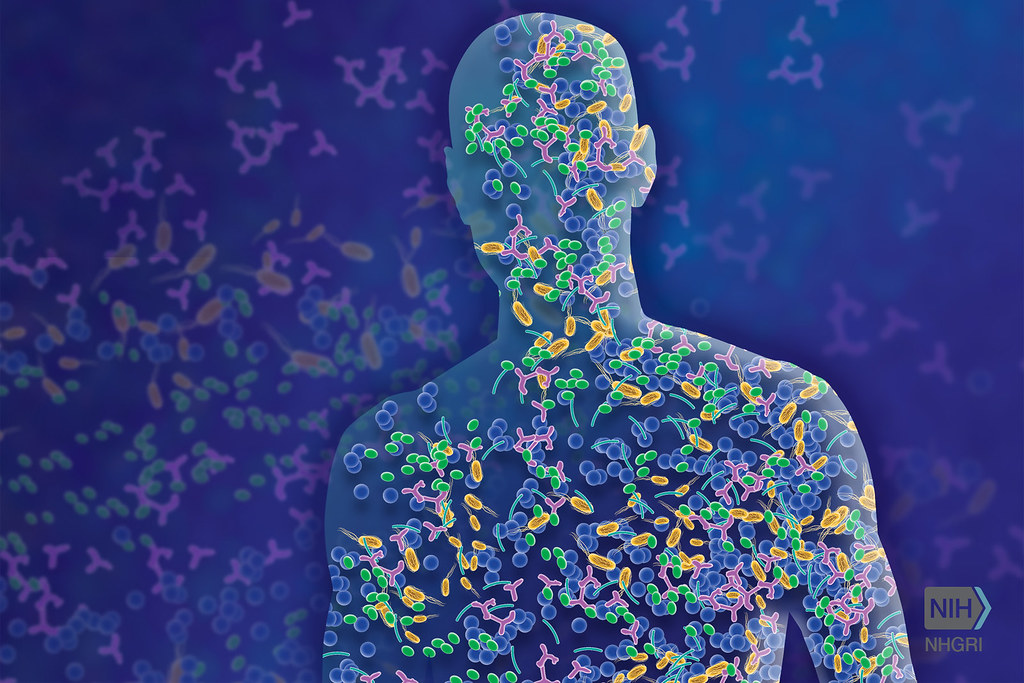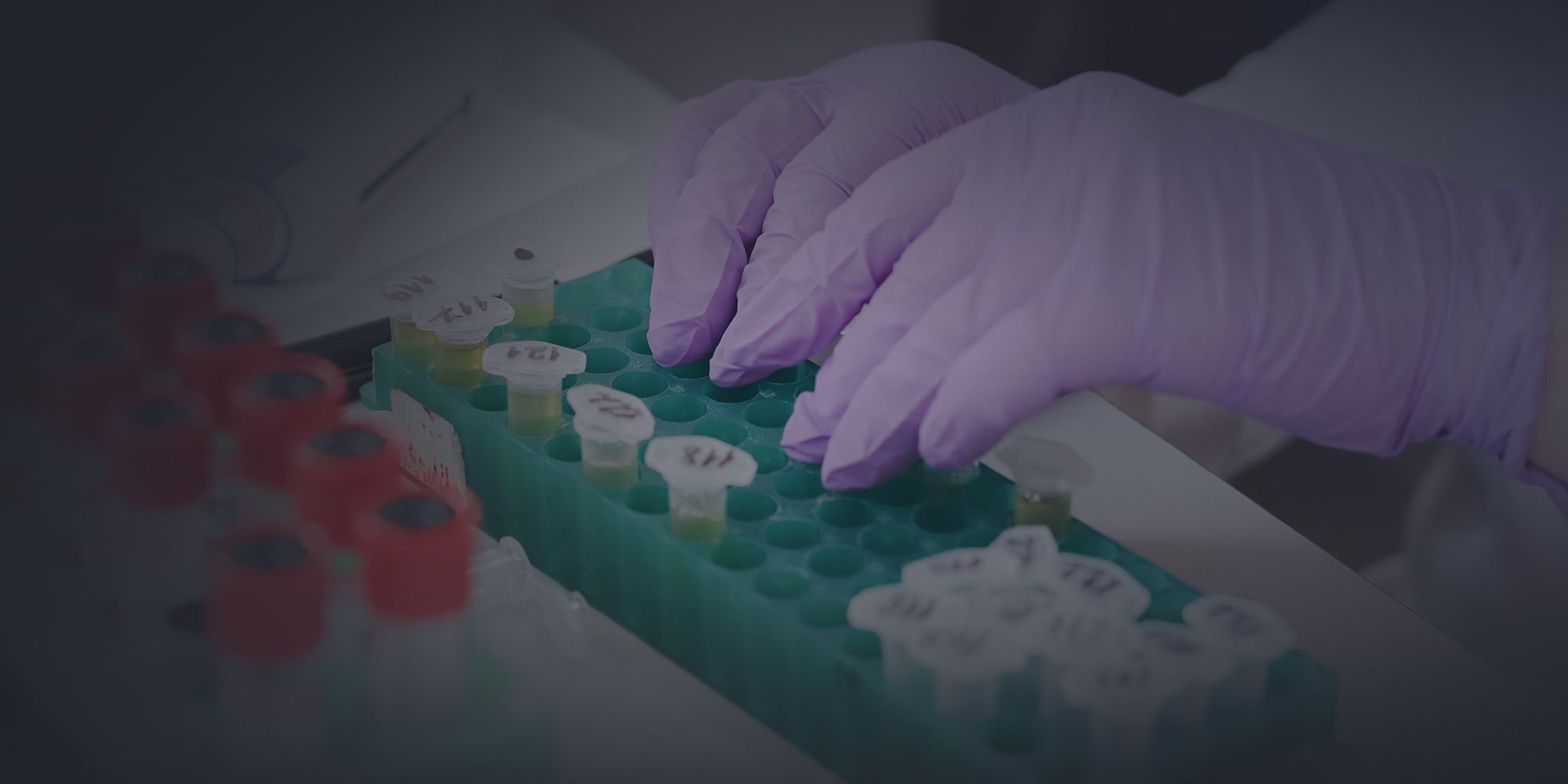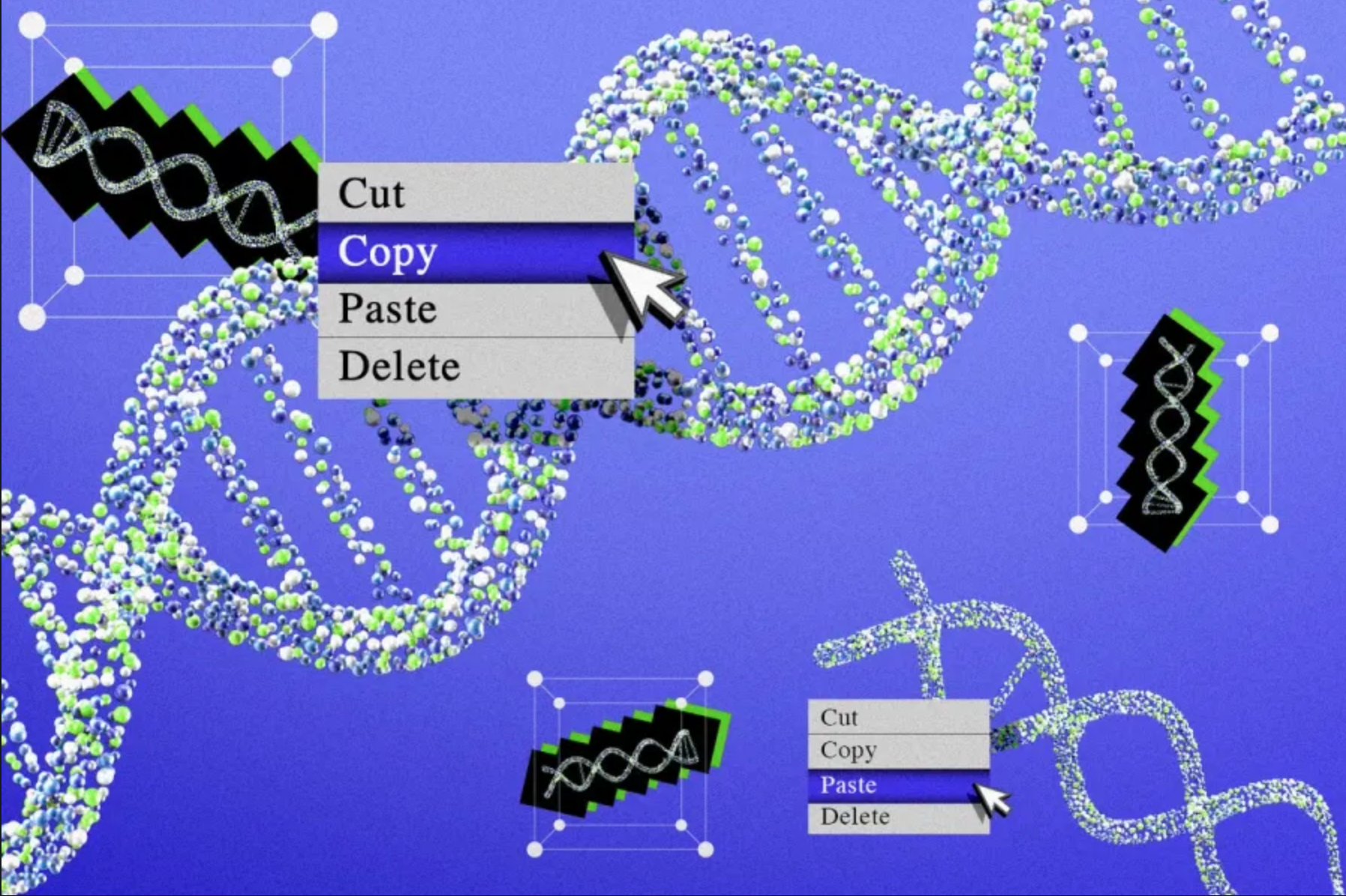
Genomics
Institute
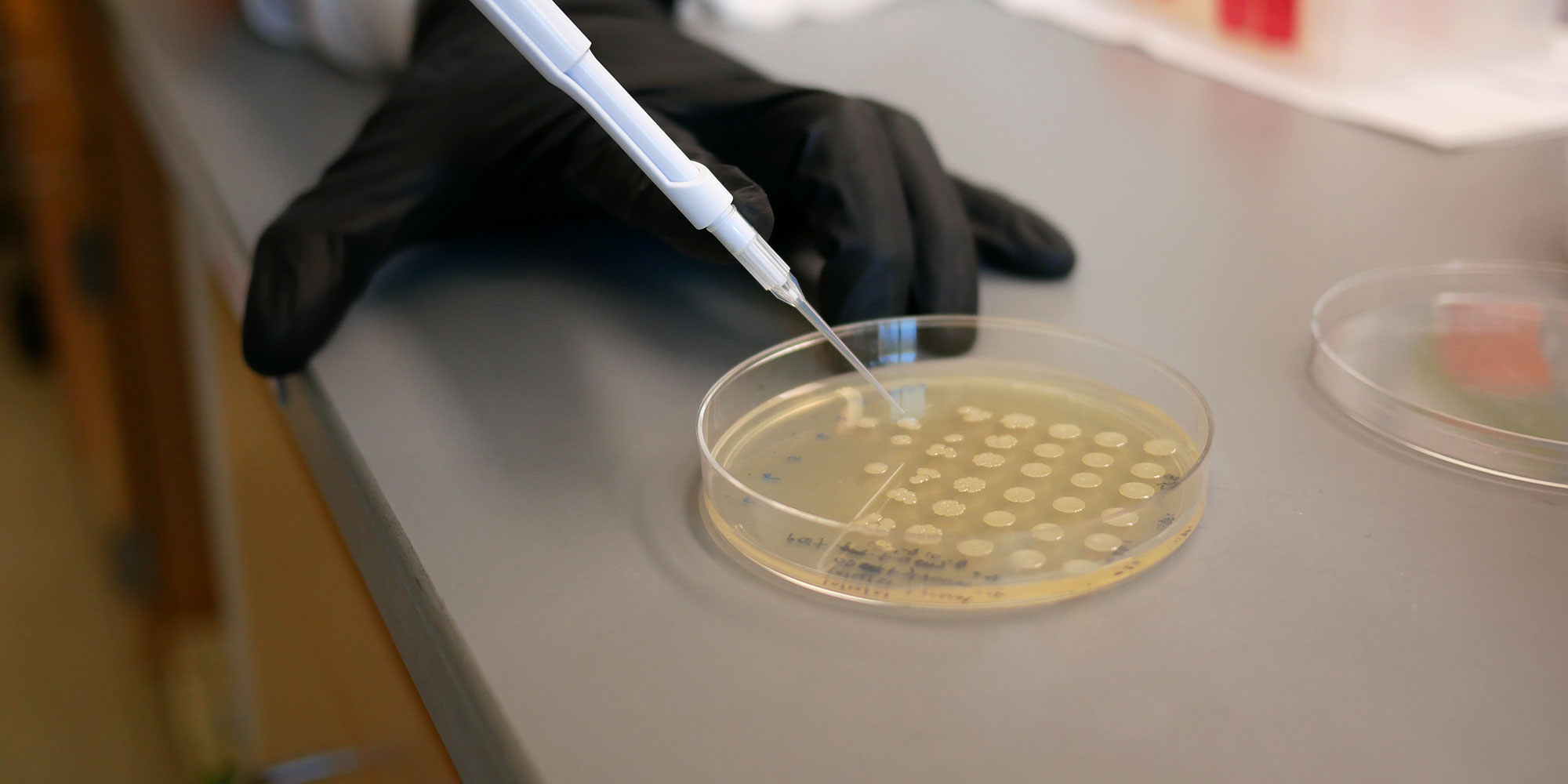
Berkeley Initiative for Optimized Microbiome Editing (BIOME)
Genome editing for the microbial world
About BIOME
Microbes live in communities in, on, and around us, shaping human biology and the world through their collective behavior. An unbalanced human microbiome underlies a growing list of diseases, including cardiovascular disease, Alzheimer’s disease, and antibiotic-resistant infections. Microbes also influence the increasing greenhouse gas concentrations that threaten all life on Earth. The Berkeley Initiative for Optimized Microbiome Editing (BIOME) at the IGI is unlocking the power of CRISPR to understand microbial communities and precisely edit them in their natural environments. Our aim is to enable safe and wide-ranging solutions to currently intractable problems. Specifically, our research areas are:
- Cultivating and characterizing microbial communities at the systems level
- Developing technologies to edit natural microbial communities
- Editing microbial communities for positive human health, food production, and climate outcomes
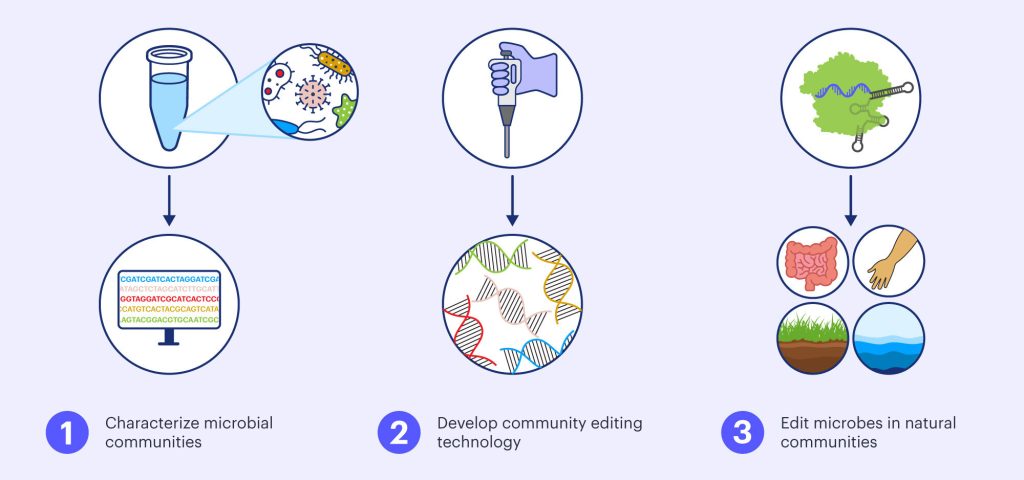
Team


Jill Banfield, Ph.D.
Director, Microbiology
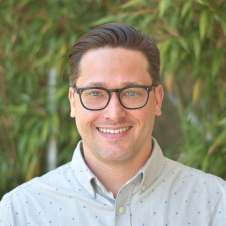
Brady Cress, Ph.D.
P.I. Microbiome Editing Technologies

Spencer Diamond, Ph.D.
P.I. Microbiome Modeling
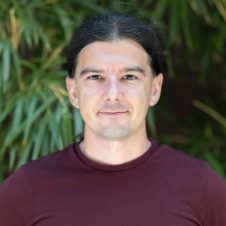
Nick Guerette, B.S.
Automation Engineer

Matthias Hess, Ph.D.
Associate Professor

Ermias Kebreab, Ph.D.
Director of the World Food Center

Sue Lynch, Ph.D.
Director, Benioff Center for Microbiome Medicine

Niren Murthy, Ph.D.
Professor

Carlotta Ronda, Ph.D.
P.I. Microbiome Editing Applications, WIES Fellow (2024-2025)

Ben Rubin, Ph.D.
P.I. Microbiome Editing Applications
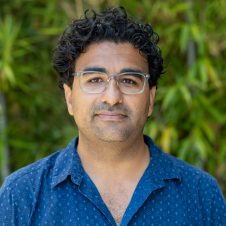
Rohan Sachdeva, Ph.D.
Director, Computational Infrastructure
Audacious Project
Announced in April 2023, the IGI received $70M in funding through the Audacious Project, an initiative housed at TED, to apply precision genome editing to microbial communities for climate change and human health applications.
The work on this initiative will be led by the BIOME PIs in collaboration with UC Davis and UCSF to enable translation of these technologies to field and clinical studies. The initiative is targeting two initial applications: reducing methane emissions from livestock, and preventing childhood asthma.
Learn more about this initiative:
- IGI’s ‘Audacious’ New Frontier for CRISPR: Editing Microbiomes for Climate and Health (IGI)
- Can CRISPR Cut Methane Emissions From Cow Guts? (UC Davis)
- Editing Genes in the Microbiome to Prevent Disease (UCSF)
- Engineering Microbiomes with CRISPR to Improve Our Climate and Health (The Audacious Project)
Learn More
Publications
The gut–airway microbiome axis in health and respiratory diseases
Özçam M and Lynch SV. Nature Reviews Microbiology
(2024)We need to act now to ensure global food security, and reduce agricultural greenhouse gas emissions
Ringeisen BR, de Azevedo Souza C, Njuguna EW, and Ronald PC. Bulletin of the Atomic Scientists
(2024)Perspectives on Genetically Engineered Microorganisms and Their Regulation in the United States
Shams A, Fischer A, Bodnar A, and Kliegman M. ACS Synthetic Biology
(2024)Infant gut DNA bacteriophage strain persistence during the first 3 years of life
Lou CY, Chen L, Borges AL, West-Roberts J, Firek BA, Morowitz MJ, and Banfield JF.
(2023)Infant microbiome cultivation and metagenomic analysis reveal Bifidobacterium 2′-fucosyllactose utilization can be facilitated by coexisting species
Lou YC, Rubin BE, Schoelmerich MC, DiMarco KS, Borges AL, Rovinsky R, Song L, Doudna JA, and Banfield JF. Nature Communications
(2023)Vitamin interdependencies predicted by metagenomics-informed network analyses and validated in microbial community microcosms
Hessler T, Huddy RJ, Sachdeva R, Lei S, Harrison STL, Diamond S, and Banfield JF
(2023)Species- and site-specific genome editing in complex bacterial communities
Rubin BE, Diamond S, Cress BF, Crits-Christoph A, Lou YC, Borges AL, Shivram H, He C, Xu M, Zhou Z, Smith SJ, Rovinsky R, Smock DCJ, Tang K, Owens TK, Krishnappa N, Sachdeva R, Barrangou R, Deutschbauer AM, Banfield JF, and Doudna JA. Nature Microbiology
(2021)Careers & Contact
Find out about open positions in the Berkeley Initiative for Optimized Microbiome Editing on IGI's Careers page. For any inquiries about BIOME's ongoing work or potential partnerships, please directly contact the lab you are interested in.
Funding
Funding for the Berkeley Initiative for Optimized Microbiome Editing comes from the Shurl & Kay Curci Foundation and anonymous donors though the Audacious Project, an initiative of TED.

